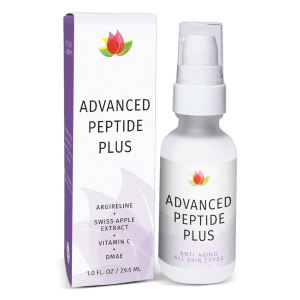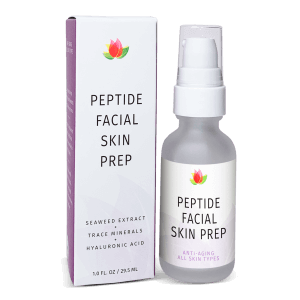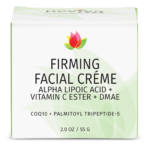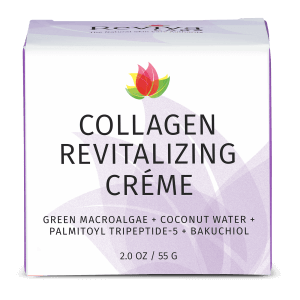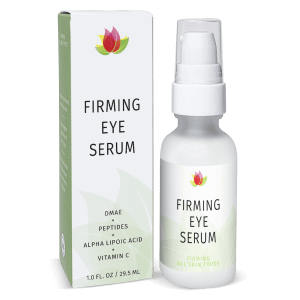Ingredients, Reviva Labs, Skin Care
Can Peptides Irritate Skin?
Peptides have become a widely discussed ingredient in skincare, celebrated for their potential to support healthy skin and combat visible signs of aging. But, with their growing popularity comes an important question: can peptides irritate the skin? While they offer a variety of benefits, not every ingredient works the same for everyone. Understanding how peptides work and how they can affect sensitive skin types is key to incorporating them into a skincare routine safely.
What Are Peptides and Why Are They Used in Skincare?
Peptides are short chains of amino acids that serve as building blocks for proteins such as collagen, elastin, and keratin. These proteins are crucial for maintaining skin’s structure, elasticity, and firmness. As we age, the natural production of collagen and elastin in the skin decreases, leading to wrinkles, sagging, and other visible signs of aging. By applying peptide-based skincare products, the idea is to stimulate the skin’s ability to produce these proteins, helping to maintain a youthful appearance.
Peptides are also known for being gentle, making them a popular choice for a range of skin types. However, like any skincare ingredient, they can have side effects for some individuals, particularly if the product is not used correctly or if the skin has specific sensitivities.
Can Peptides Cause Skin Irritation?
In most cases, peptides are considered safe and non-irritating. Many people tolerate them well, even those with sensitive skin. However, there are certain factors that may lead to irritation when using peptides.
One common reason for irritation is the concentration of peptides in the product. Peptides are active ingredients, meaning they can be potent. A high concentration of peptides, especially when combined with other active ingredients like acids or retinoids, can overwhelm the skin. When introducing new active ingredients into a skincare routine, it’s essential to start slowly, allowing the skin to adjust.
Another factor is the formulation of the peptide product. Not all skincare formulations are created equal. If peptides are included in a product with a poor formulation or combined with harsh preservatives, fragrances, or other irritants, this could lead to a negative reaction. The irritation might not necessarily stem from the peptides themselves, but rather from the other components of the product.
Identifying Signs of Irritation from Peptides
For those concerned about potential skin irritation, it’s helpful to understand what signs to look out for. Skin irritation can manifest in several ways, including redness, itching, stinging, dryness, or even breakouts. In some cases, the skin may feel tight or uncomfortable shortly after applying a peptide product. These reactions typically occur soon after introducing the product into the routine.
For individuals with highly reactive or sensitive skin, even small concentrations of peptides may cause discomfort. If any of these symptoms appear after using a new peptide product, it’s a good idea to stop using it immediately and consult a dermatologist if necessary.
Peptide Sensitivity and Skin Type
The likelihood of peptides irritating the skin may depend on an individual’s skin type. For example, those with sensitive or reactive skin are generally more prone to irritation from any new skincare ingredient, including peptides. Sensitive skin is more easily affected by changes in pH, product formulations, and external factors like weather or pollution. Therefore, it’s essential to introduce peptides slowly and observe how the skin responds.
People with normal or combination skin types tend to experience fewer issues with peptides. For them, peptides can provide hydration, firming effects, and support for collagen production with minimal risk of irritation. However, this does not mean irritation is impossible. The skin is a dynamic organ, and its tolerance to ingredients can change over time due to internal and external factors.
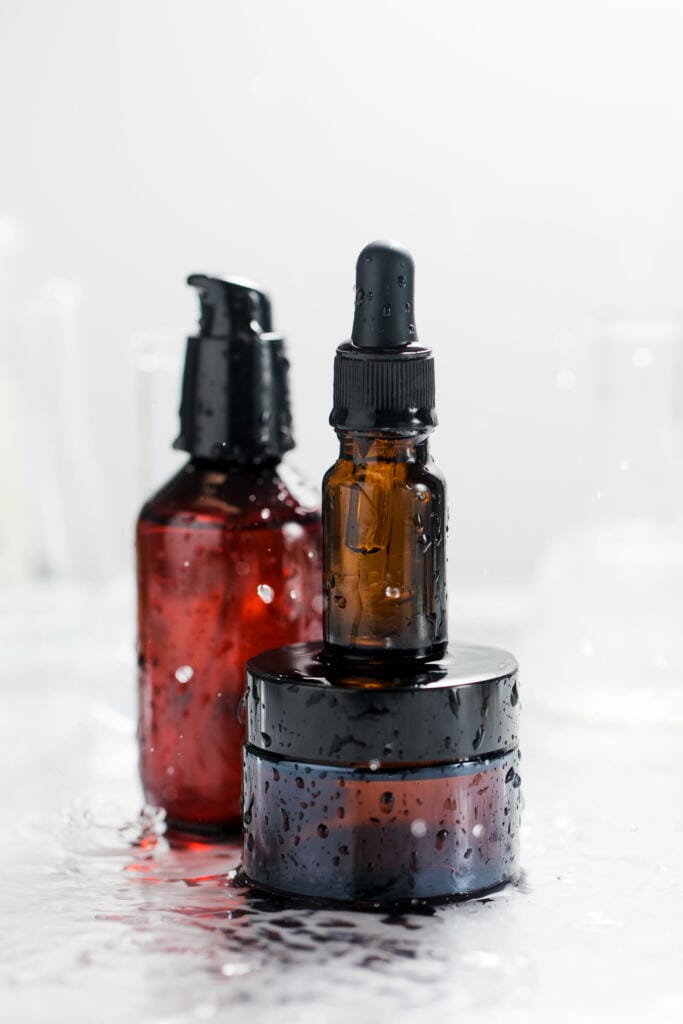
Those with oily skin may also benefit from peptides, as these ingredients are typically lightweight and non-comedogenic, meaning they don’t clog pores. Yet, it’s crucial to choose peptide products designed for oily or acne-prone skin to avoid any added ingredients that could cause breakouts.
How to Use Peptides Without Irritation
To minimize the risk of irritation, there are a few best practices to keep in mind when incorporating peptides into a skincare routine. First, it’s always advisable to patch-test any new product. Applying a small amount of the product to an inconspicuous area, like behind the ear or on the inner forearm, can help gauge how the skin will react before applying it to the face.
Another important tip is to introduce peptides gradually. If a product contains peptides along with other active ingredients, start by using it every other day or even less frequently. This allows the skin to adjust and build tolerance without becoming overwhelmed.
Layering products is another consideration. If peptides are being used in combination with other potent ingredients like vitamin C, retinoids, or alpha-hydroxy acids (AHAs), it’s important to understand how these ingredients interact. Using too many active ingredients at once can increase the likelihood of irritation. Consulting with a skincare professional or dermatologist about the best way to layer these products can be helpful.
Additionally, paying attention to the formulation is critical. Opt for peptide products that are free from harsh preservatives, synthetic fragrances, and dyes. These unnecessary ingredients can exacerbate irritation, particularly for sensitive skin. Choosing well-formulated products from reputable brands that focus on gentle, effective skincare can significantly reduce the risk of adverse reactions.
Peptides and Other Active Ingredients: Potential Conflicts
While peptides generally work well with other skincare ingredients, combining them with certain actives may increase the risk of irritation. For instance, retinoids are well-known for their ability to improve skin texture and promote cell turnover, but they can also cause dryness and peeling. When used with peptides, which are designed to be soothing and supportive, the combination can sometimes be too intense, leading to irritation.
According to a 2022 study published in Dermatology Research and Practice, up to 25% of individuals with sensitive skin report irritation from peptide-containing products, often due to improper formulation or combining them with other active ingredients.
Exfoliating acids such as glycolic acid or salicylic acid can also interact with peptides in unexpected ways. These acids exfoliate the skin, which can make it more vulnerable to irritation. Applying peptide serums or creams immediately after using an acid may heighten sensitivity, particularly for those with dry or sensitive skin.
To reduce potential conflicts, it’s best to space out the application of strong actives and peptides. For example, acids or retinoids could be used at night, while peptides are applied in the morning.
The Research on Peptides and Irritation
While peptides are commonly promoted as safe and effective, it’s important to consider what research says about their potential for irritation. A study published in Dermatologic Therapy emphasized that while peptides have significant benefits in anti-aging, some individuals may experience irritation depending on the formulation and their skin type. Still, most clinical studies show that peptides are generally well-tolerated by the majority of users when used properly.
Moreover, an increasing number of formulations aim to combine peptides with hydrating ingredients like hyaluronic acid to further minimize the risk of irritation. According to research from The Journal of Clinical and Aesthetic Dermatology, combining peptides with such soothing ingredients can enhance the overall benefits while reducing sensitivity.
Conclusion: Are Peptides Right for You?
Peptides are an exciting and beneficial ingredient in skincare, offering support for collagen production, elasticity, and overall skin health. However, as with any active ingredient, there is always a chance of irritation, especially for individuals with sensitive or reactive skin. By taking steps such as patch-testing, starting slowly, and selecting well-formulated products, it is possible to incorporate peptides into your routine while minimizing the risk of irritation.
Ultimately, peptides remain one of the gentler anti-aging options available today. For most individuals, they provide valuable support for healthier, more resilient skin without significant downsides. As always, listening to your skin and adjusting your routine as needed is key to achieving the best results with any skincare ingredient.







